Why People Fart
Many people get embarrassed when they accidentally fart because it’s considered a sign of bad manners in most modern cultures. However, farting is an integral part of our body, and people who don’t fart simply don’t exist.
5-Minute Crafts is telling you why people fart and whether it’s possible to control it.
Farting means letting gases out. But let’s try to figure out how these gases appear inside our bodies.
Gas formation is an absolutely natural process for the body. The intestines constantly produce gas and release anywhere from 500 to 2,000 ml of it daily. Small bubbles of gas come together into larger ones on their way to the exit.
Intestinal gas includes methane, nitrogen, and carbon dioxide. The ratio of these gases depends on the food that the person had.
Why gas is always different
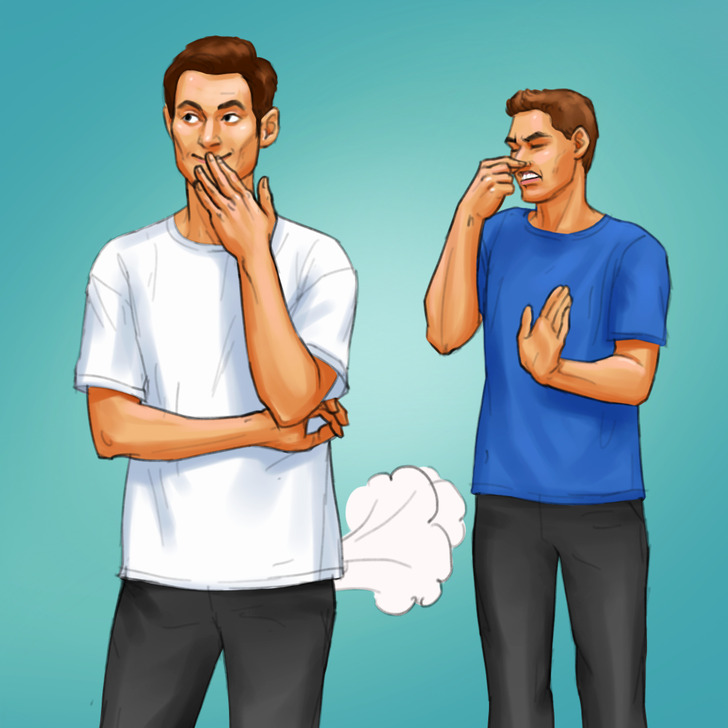
- Sound: Intestinal gases come out with different sounds. Sometimes it can be silent, while other times, farts can be quite loud. When we release gas, the muscles of the intestines push the air through the tight ring of muscles at the anus. It’s the volume of the emitted gas and the tension of the sphincter muscles that affect the sound. The more gas that has accumulated in the intestines and the stronger the tensed muscles, the louder the sound will be.
- Smell: Gas can have a smell or can be odorless. It’s the food that we eat that affects it. For example, products that contain sulfur can give gas an unpleasant odor. Some bacteria in the gut produce methane or hydrogen sulfide, which also “smell.” For example, hydrogen sulfide gives the smell of spoiled eggs.
- Frequency: All people fart, but some do it more often than others. On average, a person farts about 15 times a day. Swallowing air, eating high fiber foods, lactose intolerance, and other digestive disorders can cause excessive gas formation.
The reasons for excess gas formation
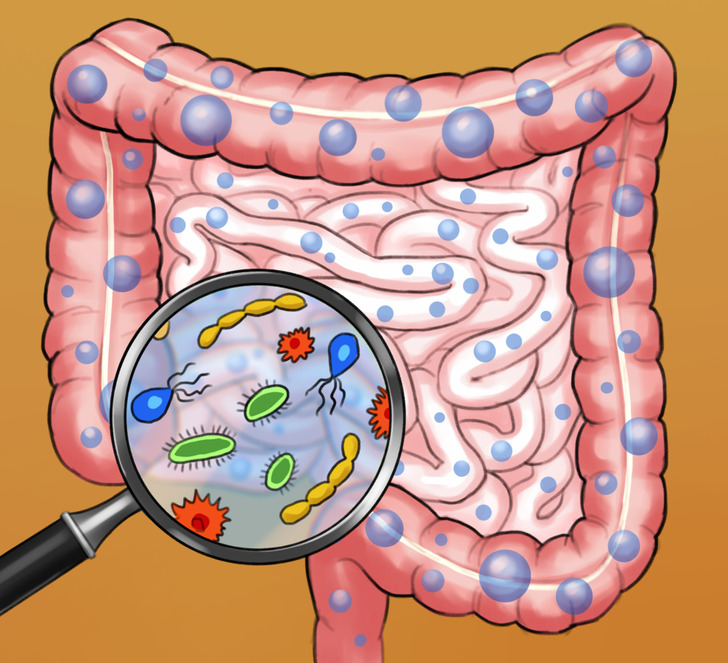
- Air: Together with food and drinks, we tend to swallow a small amount of air. Oxygen and nitrogen from this air are absorbed into the bloodstream from the small intestine, and the remaining gas is released naturally. By the way, it’s people with a high level of anxiety who suffer from swallowing air more.
- Normal digestion: Gastric acid is neutralized by pancreatic secretion, and carbon dioxide is produced as a byproduct in this process.
- Bacteria: There are many bacteria necessary for good digestion that live in the gut. They ferment certain food components, which also release gas as a byproduct. Some part of this gas is absorbed into the bloodstream and exhaled through the lungs, while the other part finds its exit through the intestines.
- Lots of fiber: On one hand, we need fiber for good digestion, and on the other hand, it can cause excessive gas formation. The small intestines are unable to break down certain compounds. That’s when intestinal bacteria that produce gas in the process start to work.
- Lactose intolerance is the inability of the body to digest certain types of sugars that are contained in animal milk. This condition provokes the excess formation of intestinal gas.
- Intolerance of short-chain carbohydrates: Some people get excess gas formation due to the fermentation of some carbohydrates, such as fructose, which can be found in different syrups, honey, and fruits.
- Irritable bowel syndrome and stomach disorders can also cause an excess of gas.
How to control your gas
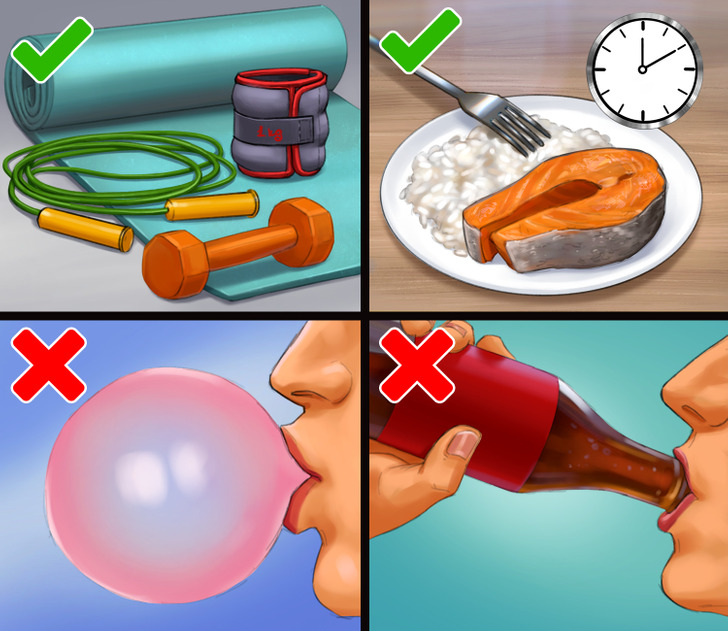
Oftentimes, it’s possible to control excess gas formation. In order to do it, one can change their lifestyle and diet.
To release less gas, one should:
Foods that cause intestinal gas
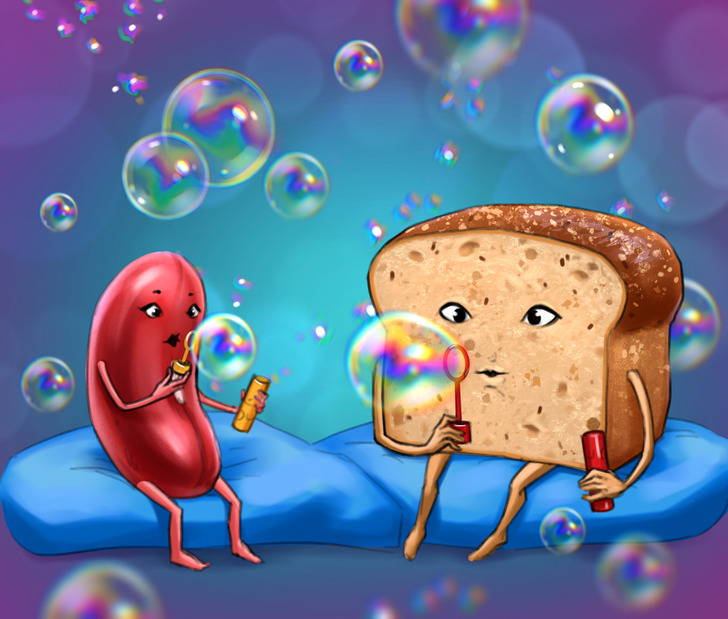
- Dairy products, which should be avoided by people who are lactose intolerant
- Dried fruit, raisins, and prunes in particular
- Some fruits, such as apples, apricots, pears, and peaches
- Products that are high in insoluble fiber, such as seeds and husks in particular.
- Legumes, such as beans, peas, chickpeas, soybeans, and nuts
- Nuts
- Carrots, eggplants, onions, Brussels sprouts, and cabbage
- Some artificial sweeteners and sugars, which are found in diet drinks and foods, such as sorbitol
- Whole grain products, such as cereal, bread, and crackers
Products that cause flatulence also contain things that are necessary for our body’s nutrients. That’s why they shouldn’t be removed from the diet completely. Just limit their consumption.
What happens if you hold in farts
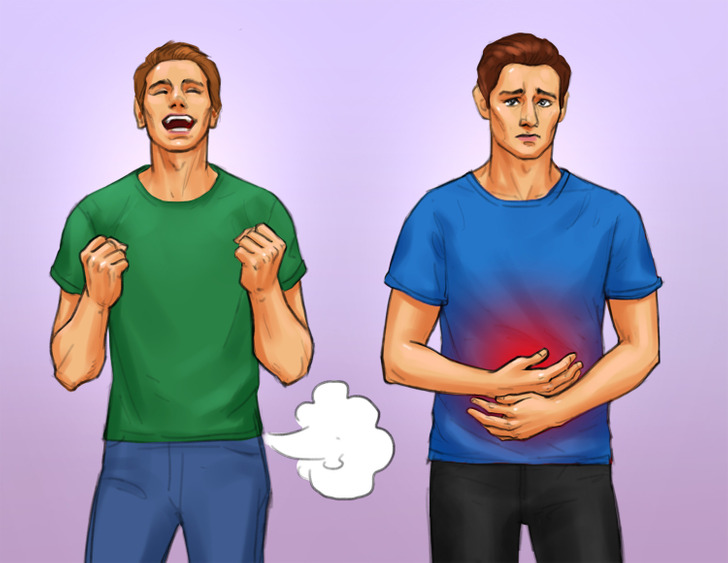
Perhaps many people wonder whether it’s bad to hold back farts. For example, we all have to do it when in public places. In this case, the gases that are not released accumulate in the gut, which can lead to bloating and even pain.
If you have to hold in your farts for a long time, you risk losing control and releasing the gas loudly. That’s why it’s better to do it right when you get the desire. For that, you may want to visit the nearest restroom.